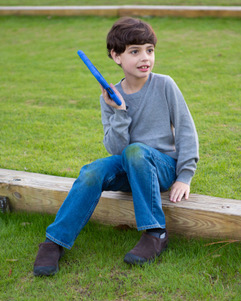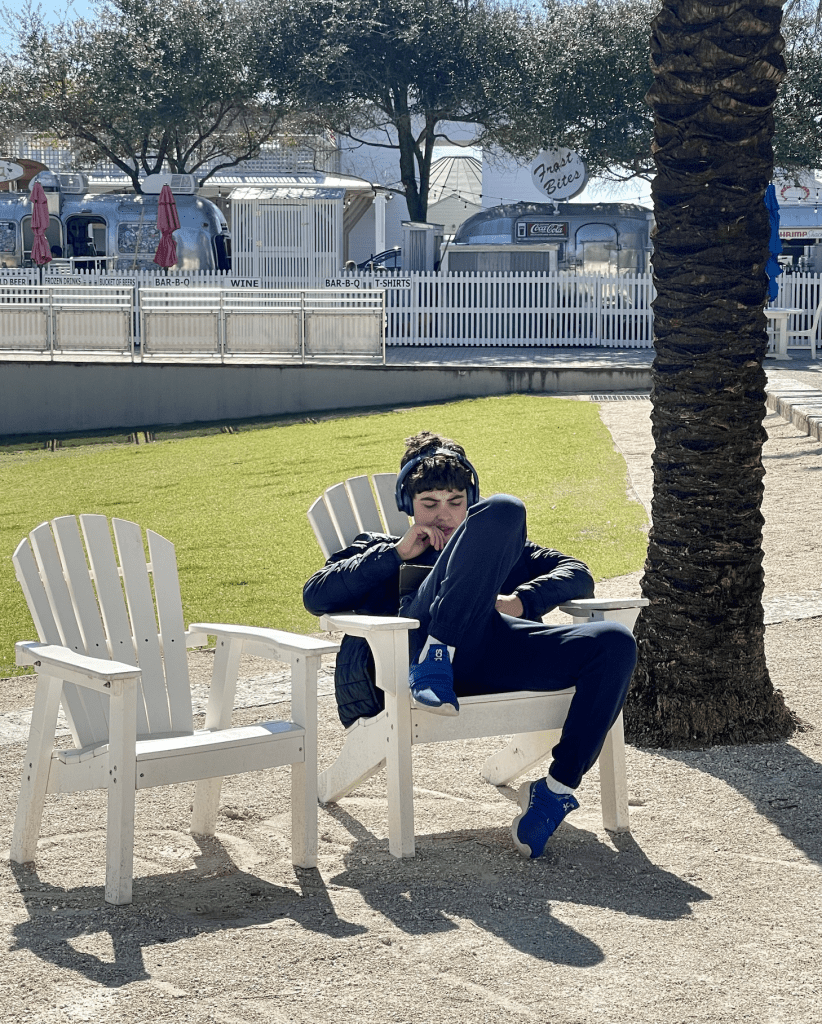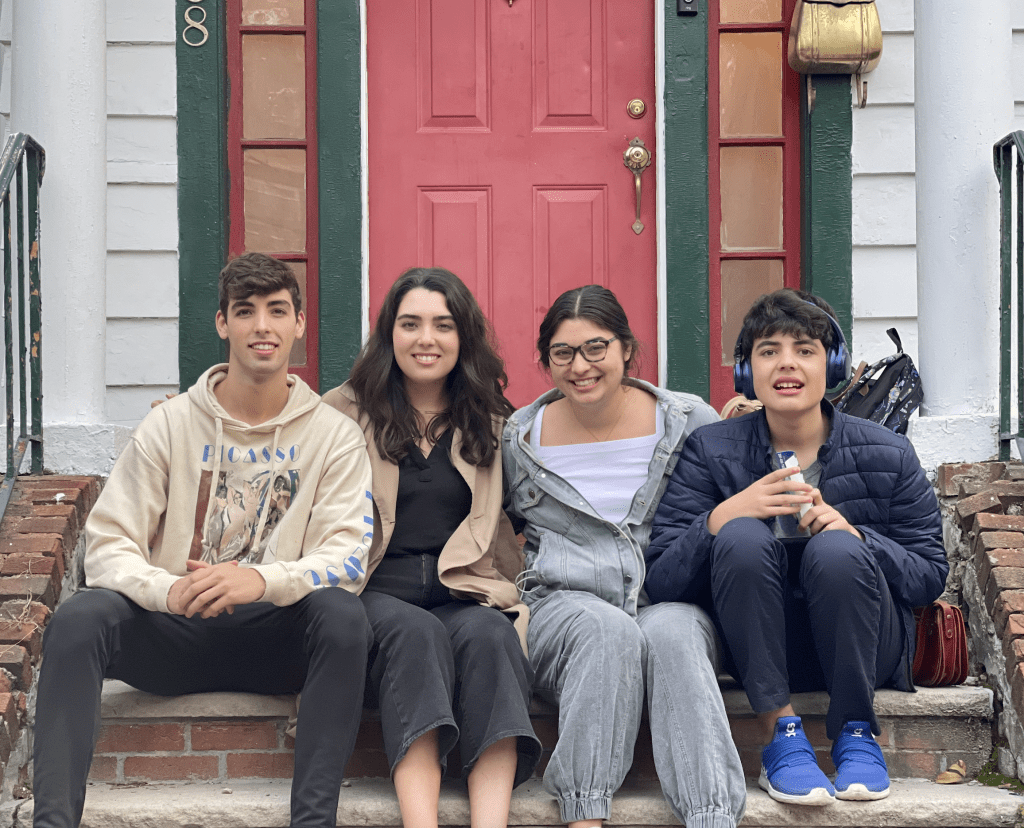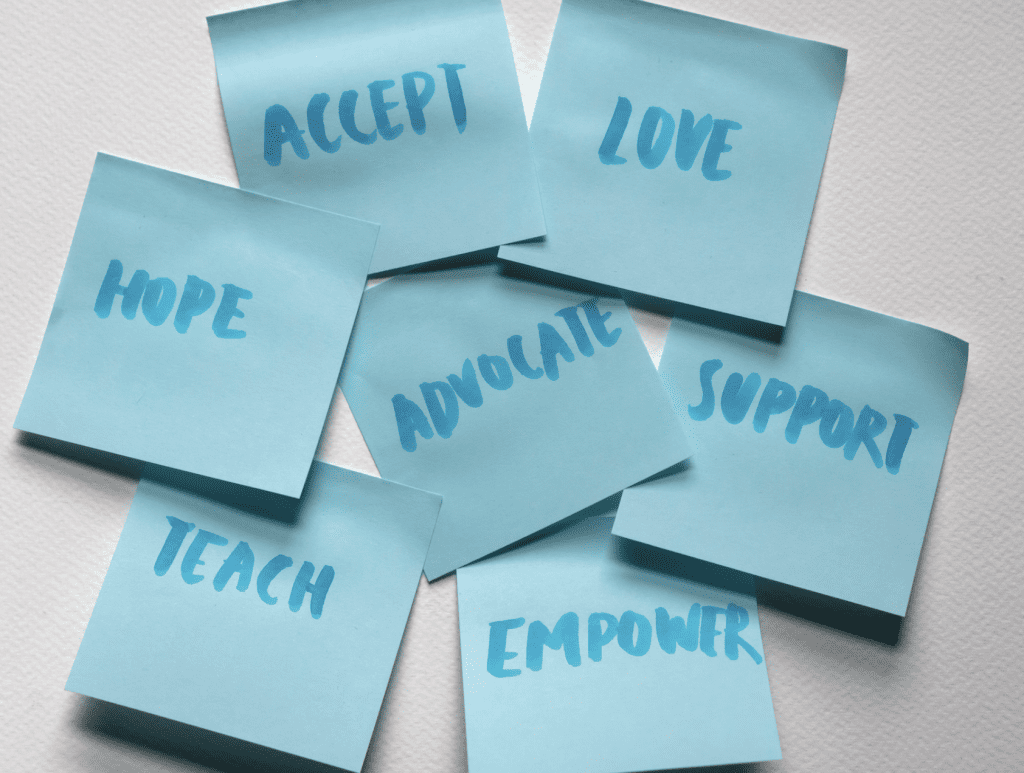Matthew’s Story:
In December 2004, our youngest son, Matthew, was born after an uneventful pregnancy. In fact, he achieved typical developmental milestones until about fifteen-eighteen months of age. Then he began to regress, lost words and eye contact, started lining toys up in a row (by color or size and always with a sorting methodology), and became a picky eater. My husband, Brett, and I both knew something was not right. For over a year, we asked our pediatrician for a referral to a specialist and asked about the “a” word. Instead, we got the usual excuses such as “he’s a boy,” “he’s the baby of the family,” and “everyone speaks for him.” But we knew it was more than that
A few months after his 3rd birthday, and over the course of one week, we received three diagnoses – each from a psychiatrist, neuro-psychologist, and pediatrician. Within six months, we also received an epilepsy diagnosis. Upon beginning anti-seizure medications and intensive speech and occupational therapies, our boy began to return to us. Slowly. As if from out of nowhere, speech came first. He began to script scenes from movies and television shows. Later we learned he used this “movie talk” to communicate the emotions he didn’t have the words for.

It was then that we first learned of Autism Pensacola. By chance, we received a social invitation to a fundraiser benefiting Autism Pensacola. They didn’t know what we were experiencing with Matthew.
Looking back, it was too soon for us to attend such an event. But the extreme kindness we experienced from another family deeper into this journey stays with us to this day.
Dr. Kevin Mahaffey, a local urologist, and parent of a young man with autism, struck up a conversation with us at the event. When asked what we were doing there, Brett explained the invitation and Matthew’s recent diagnosis. Hearing those words out loud for the first time, my eyes welled with tears. There was a deep emotion connected to hearing or speaking of autism. Somehow, Kevin knew just what to say. He asked, “How are you doing?” Though Brett was composed enough to speak, I was too overcome with emotion. In that moment, the Mahaffey’s taught us how to help others in this club. Even if it was the club we never thought we’d find ourselves in; we are in it nonetheless.
Living with Matthew is a little bit like living with Buddy the Elf. He is 5’11” and weighs about 150 lbs. He loves his iPad, the Wiggles, and anything Disney Pixar, but especially Toy Story 2 and Buzz Lightyear. Matthew can repeat the entire movie, word for word. He loves french fries and chicken but hates fire drills or the use of the word “fire” in general. My son tolerates school and experiences a lot of anxiety about changes in his schedule. He loves to travel and stay in hotels, has a quick wit and the memory of an elephant.

So, what’s next? That’s the most difficult question for any parent or caregiver of a loved one on the spectrum. We try to stay ahead of Matthew’s needs and either seek or create the next thing he needs to help him continue to grow. For us, that’s guardianship and figuring out what we do when he graduates from high school in a few years.
What is Autism?
It is a developmental disability that can cause significant social, communication, and behavioral challenges.
How Did We Get Here?
We now know…biology and genetics. Though initially thought to be related to family experiences (specifically a mother’s lack of attention), this research turned out to be false.
First identified in the 1940s, “early infantile autism” was used to describe those who exhibited high intelligence combined with a “desire for aloneness” and “persistent sameness.” Soon after, Asperger Syndrome described a milder form of autism, based on boys who were highly intelligent but struggled socially and showed obsessive interests.
In the early 1980s, autism was officially listed in the DSM (diagnostic and statistical manual) as a diagnosis. You may remember a popular and critically acclaimed movie from the ’80s, Rain Man, starring Dustin Hoffman. It had both positive and negative impacts. While it certainly raised public awareness, it left the impression that all autistics possess savant-like gifts, which they do not.
It wasn’t until 1991 that autism was added to the list of diagnoses that qualified students for special education services in the public education system. After gaining more knowledge about the disorder, Asperger’s was eventually removed as a separate diagnosis leaving Autism Spectrum Disorder (ASD) as the remaining diagnosis.
Prevalence and Financial Impact of Autism
ASD occurs similarly across racial/ethnic groups in the US. On a regular basis, the Center for Disease Control releases updated statistics. It is important to note, however, that these statistics are limited to students in public schools and are likely underestimates because many ASD students are either home-schooled or in private school due to their diagnosis. It is estimated that boys are four times as likely to be diagnosed with ASD as girls. ASD diagnoses have steadily increased over the years. In 2006, 1 in 150 children were diagnosed with ASD compared to 1 in 44 children in 2021.
Lifetime costs for caring for an autistic individual are estimated at $2.4 million, compared to $1.4 million for a neurotypical individual. In part, this is due to the costs of specialized doctors, therapies, and private special education costs.
From Diagnosis to Building a Team
Once you receive a diagnosis, many things begin to occur simultaneously. It’s important to build a team and get on the same page with your spouse or partner. Raising a special needs child is hard, and it can take a toll on marriages. My husband and I work hard at being a team and working through the emotions that accompany caring for Matthew.
Seek out local, regional, and national resources.
Grieve.
Let’s talk about grief in the context of an ASD diagnosis for a moment. When you receive an autism diagnosis, you realize that the hopes and dreams you once had for your child may now be unrealistic. You must let go of those unrealistic dreams. And, when you do… it opens the way to formulate new hopes and dreams and fully celebrate the milestones your child achieves on their own timeline and not those set by the rest of the world.
Teamwork
Every special-needs family needs a team of advocates to include family and friends who are like family. The truth is, you lose some friends because they don’t know what to do or say or how to interact with your child. Let them go. Love and appreciate the ones who stay. Build a positive, healthy support system.
You’ll need doctors, therapists, specialists, school administrators and educators, private caregivers, and coaches. Just to name a few. Just as every family is unique, so are your families’ needs.
I know it seems like a lot to process right now, but one day you will look back and see the silver linings. One silver lining for our family is the impact growing up with Matthew had on our other children. They are kind, compassionate, driven, inclusive young adults. My other children learned to see the good in everyone. They learned to step in and help instead of waiting to be asked, not just with Matthew but in the community as well.

Local Resources in the Pensacola Area
https://www.fdlrsemeraldcoast.org/child-find
https://arc-gateway.org/our-programs/pearl-nelson/
https://shcs.ptdiocese.org/morning-star/
https://www.phoenixlearningacademy.org















